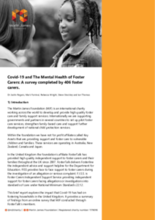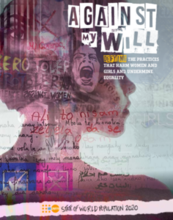Demographic Data
|
Sources: World Bank, UNDP, UNAIDS, DHS 2013 |
Displaying 3861 - 3870 of 14392
This paper investigates whether the Government of Zimbabwe’s Harmonized Social Cash Transfer (HSCT) Program, which combines cash transfers with complementary services, affects youth exposure to physical violence.
This brief report explores the impact that Covid-19 has had on fostering households in the United Kingdom.
The purpose of this study was to identify changes in knowledge, skills and efficacy of foster caregivers who received trauma coach services.
This editorial piece from The Lancet Child & Adolescent Health urges that the "far-reaching consequences [of the COVID-19 crisis] call for children and their right to health, education, and protection to be prioritised in the pandemic response and recovery planning."
This study explored (1) the role of ethnic identity in predicting internationally adopted adolescents' expectancies for success and task values and (2) the extent to which school belonging mediated these relations.
The present study examined the protective effect of the error-related-negativity (ERN) in a sample of children who experienced at least 3-years of stable, relatively enriched caregiving after being internationally-adopted as infants/toddlers from institutional-care.
In response to the continuing need for agencies providing residential care and treatment to children and youth to develop and/or to enhance their ability to examine the effectiveness and efficiency of their services, this article explores successful strategies for building and sustaining research capacity in these settings.
This report from UNFPA explores harmful practices affecting women and girls around the world, focusing on three particular practices: female genital mutilation (FGM), child marriage, and son preference.
In this webinar, hosted by Early Childhood Development Network, UNICEF, and the Khan Foundation, panelists discuss programs to support parents and caregivers during the COVID-19 crisis.
This 90-minute webinar will highlight how two models for supporting parents and caregivers so they can help their young children survive and thrive – (1) Care for Child Development and (2) REACH UP and Learn - have been adapted and implemented in various contexts around the world.


